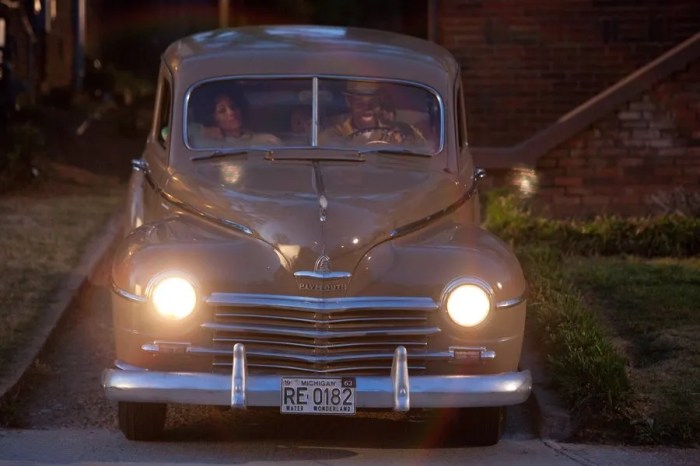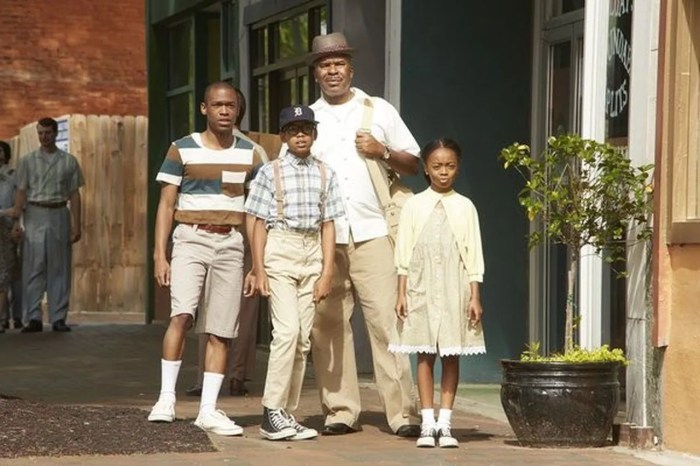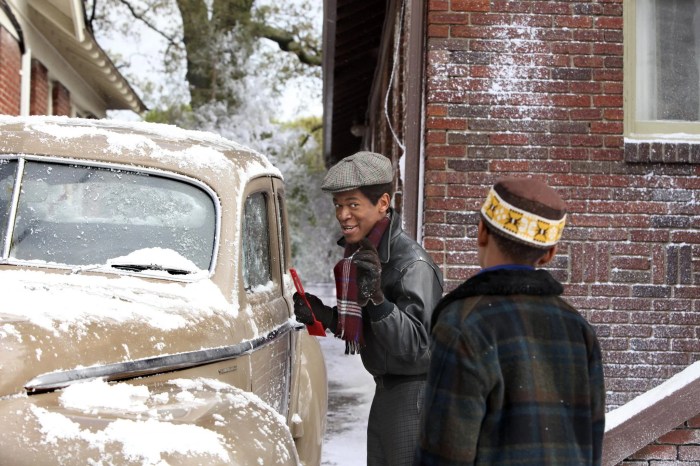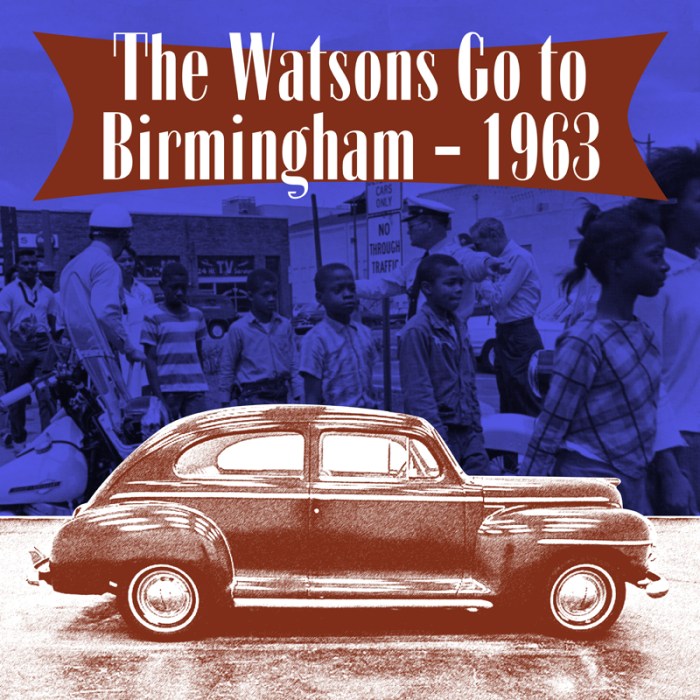Brown Bomber Watsons Go to Birmingham tells the captivating story of Joe Louis’s groundbreaking visit to the racially segregated city in 1937, exploring its immediate and enduring impact on race relations and the fight for civil rights.
As a symbol of racial pride and determination, Louis’s visit challenged societal norms and inspired countless individuals and movements.
Historical Context

The nickname “Brown Bomber” holds significant weight in the annals of boxing history, representing the formidable presence of Joe Louis, an African-American boxer who reigned as the undisputed world heavyweight champion for an unprecedented 11 years and 8 months.
Born Joseph Louis Barrow in 1914 in Lafayette, Alabama, Louis’ early life was marked by poverty and racial discrimination. Despite these challenges, he developed an unwavering determination to excel in boxing. His professional debut in 1934 ignited a remarkable career that would transform him into a global icon.
Social and Cultural Climate
The 1930s and 1940s in the United States were characterized by profound social and cultural shifts. The Great Depression had ravaged the economy, and racial tensions remained deeply ingrained in American society. Louis’ rise to prominence as a black heavyweight champion during this era served as a powerful symbol of resilience and hope for African Americans.
His victories in the ring challenged prevailing stereotypes and inspired a sense of pride among black communities. Louis’ unwavering determination and sportsmanship earned him widespread admiration, transcending racial boundaries and fostering a sense of unity.
Joe Louis’s Visit to Birmingham: Brown Bomber Watsons Go To Birmingham

In 1937, Joe Louis, the world heavyweight boxing champion, visited Birmingham, Alabama, a city notorious for its history of racial segregation and violence.
Louis’s visit was part of a nationwide tour to promote his upcoming fight against Max Schmeling. However, his visit to Birmingham took on a special significance given the city’s racial climate.
Louis’s Interactions with the Local Community
During his visit, Louis met with local leaders and members of the African American community. He also attended a rally at the Sixteenth Street Baptist Church, a historic center of the Civil Rights Movement.
Louis’s presence in Birmingham was a powerful symbol of hope and inspiration for the African American community. His visit helped to raise awareness of the city’s racial problems and encouraged local activists to continue their fight for equality.
Impact of Joe Louis’s Visit

Joe Louis’s visit to Birmingham in 1937 had a profound impact on the city and beyond. His presence challenged racial barriers, inspired the African American community, and contributed to the growing movement for civil rights.
Immediate Impact on Birmingham, Brown bomber watsons go to birmingham
Louis’s visit brought national attention to Birmingham’s racial segregation. His insistence on staying at the Tutwiler Hotel, a whites-only establishment, forced the hotel to break its policy. This act of defiance sent a powerful message that segregation was unacceptable.
Louis’s visit also boosted the morale of Birmingham’s African American community. They were inspired by his success and his willingness to stand up for what he believed in. Louis’s presence gave them hope that change was possible.
Long-Term Effects on Race Relations
Louis’s visit had a lasting impact on race relations in Birmingham. His challenge to segregation helped to pave the way for the desegregation of public accommodations in the city. In 1963, Birmingham became a major battleground in the civil rights movement, and the city’s African American community played a leading role in the fight for equality.
Inspiration for Others
Louis’s visit to Birmingham inspired other individuals and movements. His courage and determination served as a model for those who were fighting for civil rights. Louis’s visit also helped to raise awareness of the plight of African Americans in the United States.
Louis’s visit to Birmingham was a watershed moment in the fight for civil rights. His presence challenged racial barriers, inspired the African American community, and contributed to the growing movement for equality.
Symbolism and Legacy

Joe Louis’s moniker, the “Brown Bomber,” was a powerful symbol of racial pride and determination. It symbolized the strength, resilience, and fighting spirit of African Americans in the face of adversity. Louis’s visit to Birmingham in 1937 was a significant event in the history of the city and the civil rights movement.
His presence in the city, and his victory over Max Schmeling, gave hope and inspiration to African Americans in Birmingham and across the country.
Legacy as a Symbol of Racial Pride and Determination
Joe Louis’s legacy as a symbol of racial pride and determination continues to inspire and resonate with people today. His story is a reminder of the power of perseverance and the importance of fighting for what you believe in. Louis’s achievements in the boxing ring and his activism outside of it have made him a role model for generations of African Americans.
FAQ Corner
What was the significance of Joe Louis’s visit to Birmingham?
Louis’s visit challenged racial segregation and violence in Birmingham, inspiring hope and unity within the African American community.
How did Louis’s visit impact race relations in the long term?
Louis’s visit helped pave the way for the Civil Rights Movement, inspiring activists and ordinary citizens alike to fight for equality.
Why is Joe Louis considered a symbol of racial pride?
As the “Brown Bomber,” Louis represented the strength and resilience of African Americans during a time of widespread discrimination.
